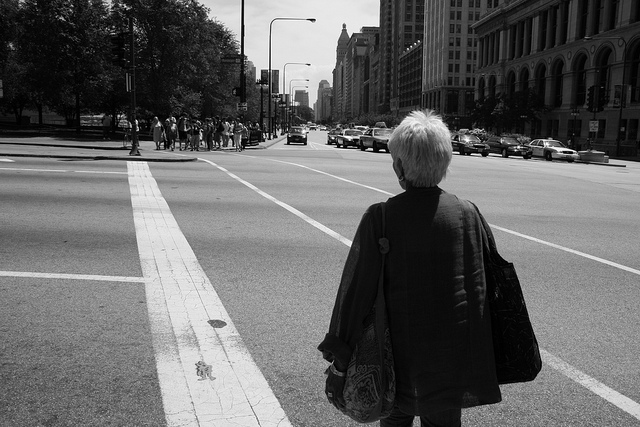Like this article? rabble is reader-supported journalism. Please chip in to keep stories like these coming.
My mother, Barbara, was a lovely, energetic, innovative and resourceful woman: she was a published author of science fiction, selling her first article to John Bull when she was only 17; she was an accomplished dressmaker, taught herself French polishing, and built her own business around each of these skills. Our home was her workshop. During the Second World War, she served as a plotter in England’s Auxiliary Territorial Service.
My father died in 1941, and my mother determined to immigrate to Canada. So, in 1946 we left England for Canada, where we settled in Medicine Hat. Once in Canada, she had two children to support, no relatives, few friends and didn’t have the luxury of writing a novel and waiting to find a publisher. She had to find a job and did so in a shoe shop on Medicine Hat’s Front Street. Barbara found very quickly that many of the shoe shop’s customers had serious foot problems and did her best to help them. Eventually, Barbara decided to train as a chiropodist, a profession at which she worked at home for many years.
Yet, in spite of all my mother’s resourcefulness, upon retirement she had very little to live on: only an Old Age Security (OAS) pension and a $100 Veterans’ Allowance. Later she would qualify for the Guaranteed Income Supplement (GIS).
I use my mother as an example because she typified many single mothers, widows and stay-at-home mothers of her era, many of whom were unable to save money for a comfortable retirement because every penny they had was spent on their children and home. There were no private pensions for women who had spent their lives outside the workforce.
I, myself, spent 17 years volunteering at a care home where the majority of residents were elderly women. I saw firsthand how little money many of these women had for even the necessities of life: clothing, toiletries, simple comforts, and so on.
Women at work today
Substantial progress for women has taken place in the last 50 years or so. Today, my mother would be called an entrepreneur and would be classified among the number of self-employed women in Canada which has risen to almost one million. In British Columbia alone, women form 37 per cent of the self-employed, higher than the national average.
Most women now work outside the home for some portion of their lives. Some women have good, well-paying jobs and professions, while others earn the minimum wage; nevertheless, statistics show that whatever profession or jobs women hold, there is still an average gender wage gap of 19 per cent. This means that for every dollar a man earns, a woman earns 81 cents.
There is also a sizable wage gap between women who have children and women who don’t. Many women move in and out of the workforce to have children and some must take time off from their job to care for children and senior family members: this results in reduced wages, lower pensions and, frequently, loss of promotion. Women re-entering the work force after being stay-at-home parents are often forced to take part-time or contract jobs with no benefits or pension provisions.
Some women face gender-based discrimination. We see examples of this all the time: a woman performing identical duties to a man, getting a slight change in her job title and a considerably lower salary; a woman being denied promotion in favour of a man with less experience; a woman receiving less pay and vacation time than a subordinate male colleague.
All of these instances impact on a woman’s pension and benefits at work and as she transitions from the workplace to retirement.
Equitable treatment for women is more of a reality each and every day, but we know there is more to do: there must be a narrowing of the gender wage gap; there must be no gender-based discrimination; there must be adequate pensions for the most vulnerable; there must be an adequate minimum wage that allows women to live with dignity.
Retiree Matters is a monthly column written by members of the Congress of Union Retirees of Canada (CURC) that explores issues relevant to retirees, senior citizens, their families and their communities. CURC acts as an advocacy organization to ensure that the concerns of union retirees and senior citizens are heard throughout Canada.
Photo: erik aldrich/flickr
Like this article? rabble is reader-supported journalism. Please chip in to keep stories like these coming.



